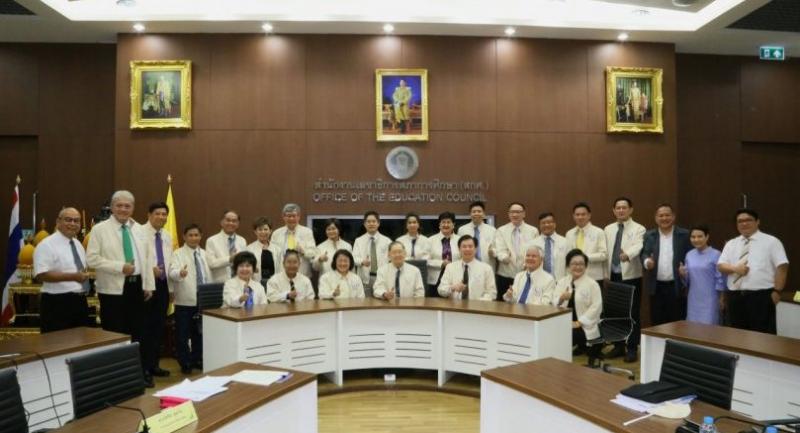Education reform to make officials accountable

SCHOOLS TO BE AT THE HEART OF CHANGES PROPOSED BY PANEL
PINNING accountability will be the key to the efforts of the Independent Committee for Education Reform (ICER) to overhaul Thailand’s educational sector.
Created a year ago, the ICER has only a two-year term. This means it will have to push the pace next year to ensure that it has solidly paved the way for education reforms to materialise.
Among the many elements the ICER seeks to introduce is “accountability”.

“Thailand has fallen into an educational crisis because of indifference and the lack of contributions from concerned parties. They sometimes take educational matters for granted. They do not really show or take responsibility,” ICER chairman Dr Charas Suwanwela said recently.
Dr Chalermchai Boonyaleepun, who chairs the ICER subcommittee on structural reform, said he would propose to the government that agencies in charge of educational management be made accountable if education was of poor quality.
“We will redesign the structure to make it clear who is responsible for what. Then, if any problem occurs, the agency in charge of that part will be liable for the consequences,” he said.
Both Charas and Chalermchai were speaking at a press conference on the ICER’s work during its first year.
Earlier this year, the Equitable Education Fund came into effect.

The Early Childhood Development Bill, the National Higher Education Bill, and the Innovative Education Area Bill, meanwhile, have already reached the government.
The draft bill on the Curriculum Development Institute (Public Organisation) is now ready for submission to the Cabinet.
“Schools will be at the heart of the education reform, as we aim to boost their competitiveness in the international arena,” Charas said. “We can support schools with curriculum, digital platforms and other requirements.”
He said great schools would make a good impact on teachers and students. Charas believed that for the education reform to be successful, schools should become autonomous.
“Those overseeing schools should play just a supporting role,” he said.
He believed that when many schools grouped together, innovative education would materialise.
According to Chalermchai, about 3,000 Pracha Rath schools and 40 Rath Ruam Pattana schools should be ready to transform themselves into autonomous schools during the pilot phase of the move to give autonomy to schools across the country.

Chalermchai also emphasised that the Education Ministry should undergo structural overhaul to become lean.
“Today, the Education Ministry is very big. Its workforce is even bigger than that of the Armed and police forces combined,” he said. “And, the Education Ministry also receives a bigger budget.”
He recommended a review of all independent agencies and all agencies under the Education Ministry to curb redundancy.
Kraiyos Patrawart, who sits on the Equitable Education Fund’s board, said the scope of the fund’s responsibility would not overlap that of other agencies.
“We will work in coordination with relevant agencies,” he said.
Kraiyos supported the Innovative Education Area Bill, as he believed it would enhance integration and collaboration of all sectors in regard to education.
Charas said Rayong and Si Sa Ket provinces would be among the first provinces to get the innovative education areas.
“We will develop such an area in Rayong first because it has a variety of industries. It has special needs,” Charas said.
As for Si Sa Ket, he said an innovative education area would be developed there to become a model.
“Si Sa Ket has poverty problems. But we will prove that it too can have innovative education,” Charas said.
He expected innovative education areas to spring up in a few areas before the start of the second semester of the 2018 academic year.
According to Charas, when relevant parties can provide good schools in all provinces of Thailand, “tea-money problems” in the educational sector will automatically end.
It is widely known that some parents have tried to offer “tea money” to Thailand’s top schools in a bid to have their children enrolled there.

Yuvadee Nakapadungrat, who chairs the ICER subcommittee on providing educational services, said the Curriculum Development Institute would play a key role in many aspects of education.
“The curriculum should be improved to tackle illiteracy among some students, with the help of some new tools,” she said. “Also, we have to prepare a curriculum that can ensure even those with special needs can access quality education.”
She added that guidelines would also be developed to boost integration of relevant agencies such as the Office of Basic Education Commission and the Institute for the Promotion of Teaching Science and Technology in curriculum development.
“Moreover, we will provide digital platforms whereby teachers can find knowledge and teaching resources,” Yavadee said with a bright hope of better education for Thais.
